Where Did the Similarities Between Taiwanese Hokkien and Korean Come From?
Taiwanese and Korean (+Japanese) || Why Are There Crossovers?
If you speak Korean or Japanese, you might already know quite a few Taiwanese Hokkien words without even realising it.

So… why is it that some Taiwanese Hokkien words sound the same in Korean, and even some Taiwanese Hokkien words sound the same in Japanese – and also Vietnamese?!
What do all these languages with different scripts that appear worlds apart, actually have in common under the surface?
Well, the answer lies if we look years back at the development of these languages and how they all cross over.
So that’s where we’re going to take you today!
A look into how Taiwanese Hokkien is similar to Korean (and also other languages, as we’ll see below).
Taiwanese & Korean || Introduction to Taiwanese Hokkien
Taiwanese & Korean || Taiwanese Hokkien History
Taiwanese & Korean || Taiwanese Hokkien & Korean
Taiwanese & Korean || FAQs
Taiwanese & Korean || Introduction to Taiwanese Hokkien
First, a small introduction to Taiwanese Hokkien if you’ve never heard of it before.
It is often referred to as Taiwanese Hokkien, Southern Min, Hokkien, or Tai-gi.
Tai-gi is how ‘Taiwanese’ is pronounced in Taiwanese. Hokkien and Southern Min are broader categories that include various different varieties of Southern Min and Hokkien.
Tai-gi = 台語 = Taiwanese = Taiwanese Hokkien
Taiwanese Hokkien, Taigi, however, refers to the variant of Hokkien spoken in Taiwan.
Whilst it is similar to other Hokkien or Southern Min dialects and languages, such as those spoken in Malaysia and Singapore, there are some differences.

Indeed, within Taiwan, there are different variations of Taiwanese depending on if you’re in the north or south!
If you haven’t heard of Taiwanese Hokkien – you definitely should if you’re interested in Taiwan or are thinking about living in Taiwan at all.
Although Mandarin Chinese is the official written and spoken language in government documents, news, media, and the one you’re most likely to hear on the street – there is another language widely spoken in Taiwan.
DID YOU KNOW || Taiwanese Hokkien is spoken by over 70% of the Taiwanese population natively. It is a Min language that came over to Taiwan with the Chinese from Fujian province (the closest mainland Chinese province to Taiwan).
In the past 20 years, the government in Taiwan have been actively trying to promote the learning of Taiwanese.
It has been standardised intro writing for both the romanisation and the use of characters and is taught in primary and middle schools.
You can hear some TV channels dedicated to Taiwanese, and there are lots of Taiwanese language music and dramas out there, too! A tremendous band to start with is Eggplant Egg, 茄子蛋 😁
Although you might not hear it on the streets of Taipei so much, when you’re walking around in Kaohsiung or Tainan, you are just as likely to overhear some Mandarin Chinese as you are Taiwanese Hokkien.
So you definitely won’t be able to escape learning or hearing at least a little Taiwanese Hokkien during your time in Taiwan.
Even if you can’t understand much, speaking it a little will be received very well by the locals who will really appreciate the fact you’re trying to learn their local language.
Whilst Mandarin Chinese is spoken by almost everyone in Taiwan, for me, there are two main reasons why I think it’s worth learning Taiwanese.
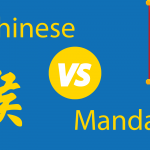
Chinese vs Mandarin 🤔 What’s the Truth?
Chinese vs Mandarin || Mandarin is a dialect of Chinese. Chinese is a language, whilst Mandarin is one of the dialects of Chinese.
Why Learn Taiwanese Hokkien
1. Not everyone speaks Mandarin Chinese. I found this out on one of the outer islands at a local restaurant. An old woman who seemed to be the owner came over and started explaining things in Taiwanese to me on the menu. I politely stopped her and explained, in Chinese, that I don’t understand Taiwanese.
She looked at me and said, in Taiwanese, that she doesn’t speak Chinese.
Then she continued to talk to me in Taiwanese explaining all the complicated types of fish in Taiwanese that I probably wouldn’t have even stood in Mandarin.
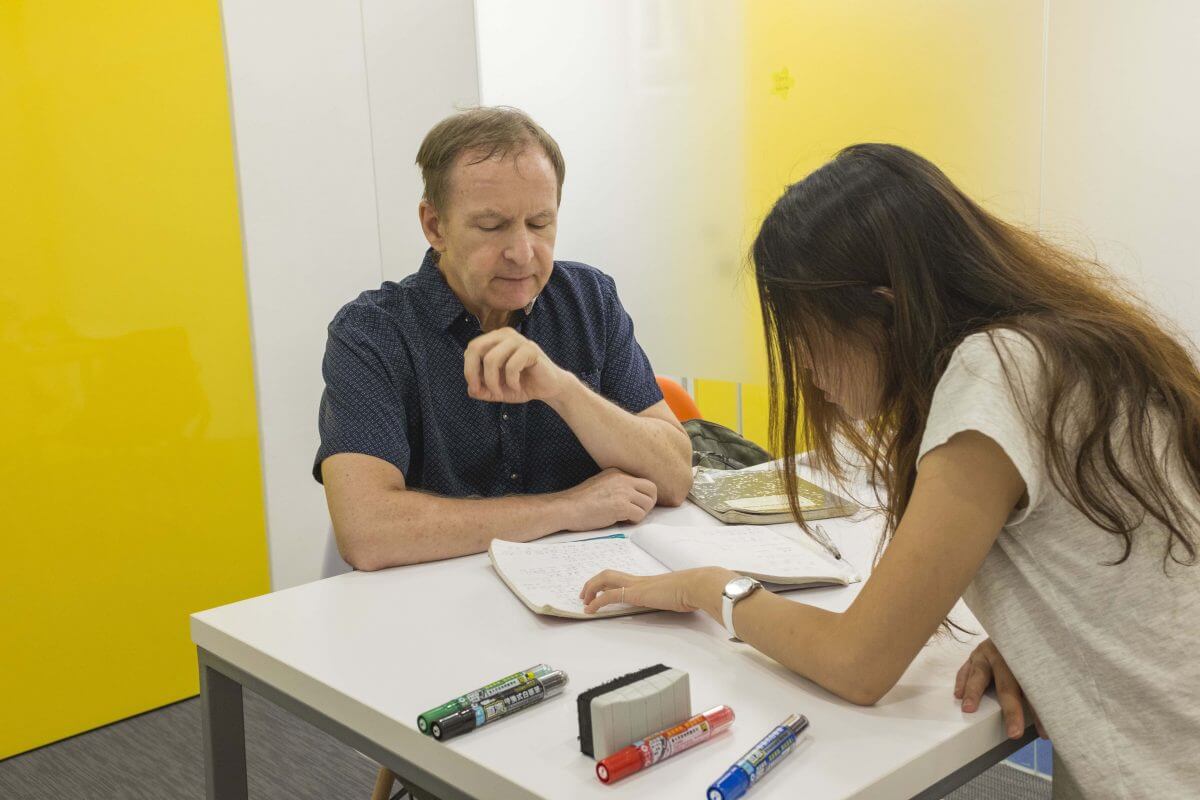
So… there are instances (although maybe few and far between) that you might actually *need* Taiwanese.
Unfortunately, my Taiwanese wasn’t good enough in this situation but at least I could tell her in Taiwanese that I didn’t understand and if she could recommend something or just simply help me with ordering a bunch of stuff.
2. Learning the culture. If you want to learn Taiwanese culture, then learning the Taiwanese language (even just the basics) will open way more doors for you.
For me, learning the language is key to learning the culture. And although I speak Mandarin Chinese pretty well, I found that learning Taiwanese really gives you a deeper insight into Taiwanese culture.
Although a lot of young people, especially in Taipei, can’t speak Taiwanese themselves, they can still understand a lot of the basics and it’s these basics you’ll hear a lot when you’re out and about!
BONUS || You’ll make great friends if you let people teach you swear words in Taiwanese Hokkien or can reply or make jokes in Taiwanese Hokkien..!
The first thing everyone says to me when they know I can understand a little Taiwanese Hokkien is ‘well, I guess we can’t say bad things about you then’. I guess a lot of Taiwanese Hokkien is making these bad jokes / saying bad things in a jokey way about people..!
Taiwanese & Korean || Taiwanese Hokkien History
The Hokkien language has been around for over 1,600 years. So we’re going to take a look back from then to now.
It’ll be interesting, promise.
And… the bit of history we’re talking about is the missing key in what connects all of these languages mentioned above together.
Chinese.
Specifically, we’re going back in history to look at Old Chinese (上古汉语, from 1250 BC) and Middle Chinese (中古汉语, 6th C AD – 12th C AD).
During the Jin Dynasty, the Han Chinese people migrated to the South. This was the first time northern people emigrated to the south in Chinese history, and they did so basically to escape war and the government in the north.
We’re not going to get into Chinese history here too much. But this migration is important for the shift in language.
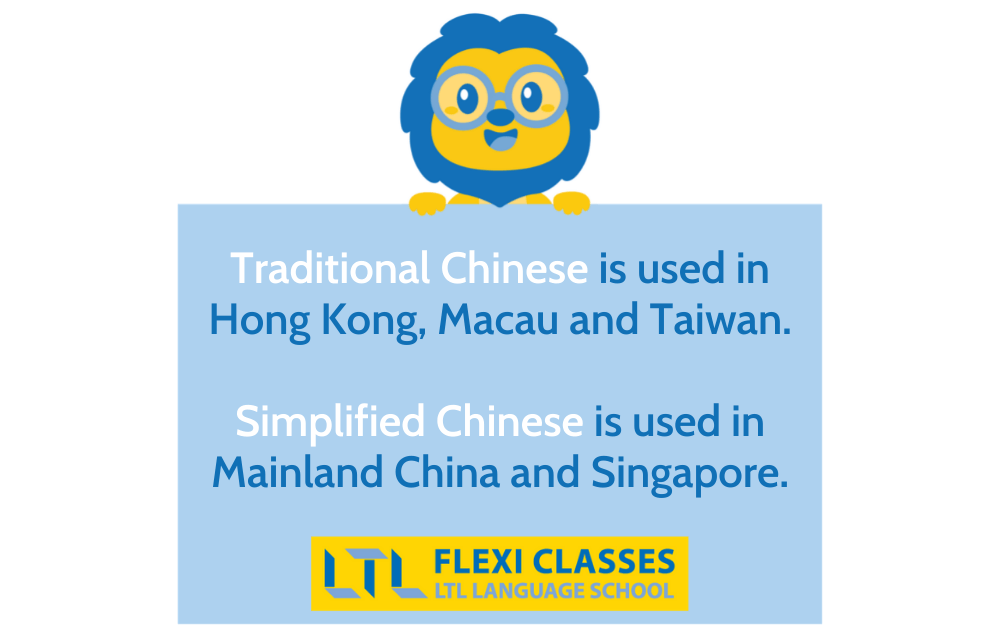
With their migration from the north, these northern Han Chinese brought their old Chinese down to the southern provinces such as Guangdong and Fujian provinces.
These provinces are big players in the Minnan languages and cultures.
Middle Chinese was brought to Fujian by a couple of generals who even founded their own Kingdom in Fujian.
Originally used in the Central Plains, Middle Chinese and Old Chinese started to mix. That’s kind of how Hokkien developed, speaking broadly!
It essentially developed from Old Chinese but also has influences from Middle Chinese.
A lot of people from Fujian then started to immigrate over to Taiwan – bringing their language with them!
BONUS ARTICLE || We compare the north and south of China – see which comes out on top!
So why does all of this matter?
Well, this time period of Hokkien language development happens to coincide with the development of Korean and Japanese, and the use of Sino-Korean and Sino-Japanese vocabulary items – basically, Korean/Japanese words derived from Chinese or used from Chinese characters.
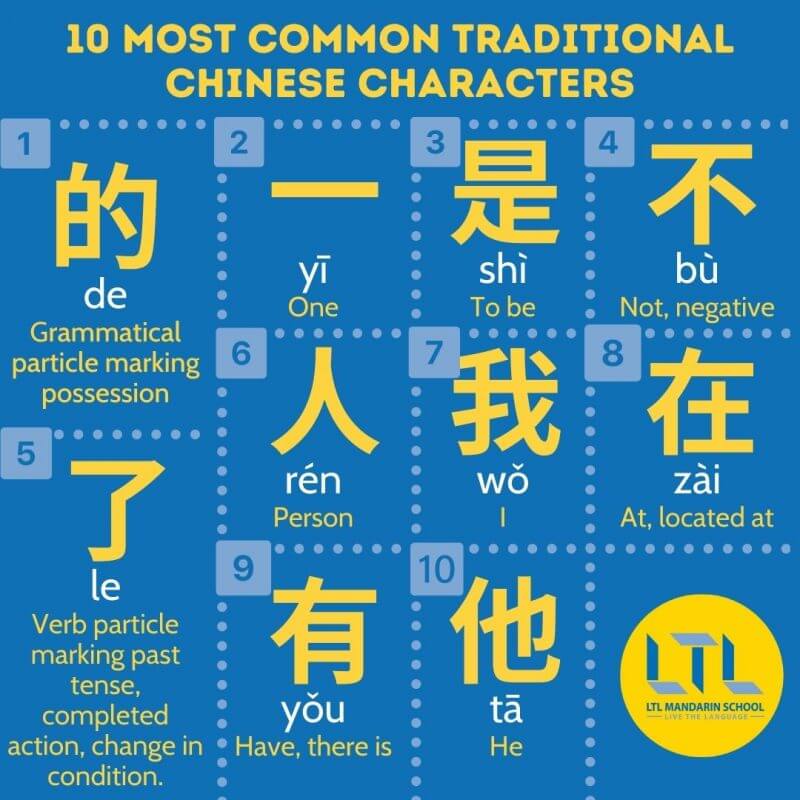
Both Korean and Japanese used Chinese characters previously, with Japanese still using them today (kanji).
Korean doesn’t use Hanja (Chinese characters) anymore, but nevertheless, the pronunciation of certain words is still derived from these basic characters originally.
In this respect, Taiwanese Hokkien will have some similarities with other languages that also borrow words or have developed from Old / Middle Chinese (such as Vietnamese).
Don’t write get it yet? Or don’t believe us?!
Let’s take a closer look at these similarities and practice with some examples.

16 Chinese Loanwords // Borrowed Words in English and Chinese
An introduction to Chinese loanwords in English and English Loanwords in Chinese. Since China began opening up, there are more & more!
Taiwanese & Korean || Taiwanese Hokkien & Korean
Taiwanese Hokkien vs Korean
There are many many Sino-Korean words in the Korean language (Korean words borrowed from Chinese).
FUN FACT || Sino-Korean words constitute 60% of the Korean language! Most of these were adapted into Korean during the Han & Tang Dynasties.
Korean uses a lot of words similar to Taiwanese Hokkien.
This is because these words came into the Korean language borrowed from Chinese at that specific time of Chinese language development (the Old/ Middle Chinese period).
This means that in a way, Sino-Korean vocabulary has preserved features of older Chinese that are not found in modern Mandarin Chinese today.
This is in contrast to Chinese which has changed a lot and, although it has preserved a lot of aspects of Middle and Old Chinese, it has developed very differently.
Korean, however, is more prescriptive and hasn’t changed much over the years. Hokkien, like Korean, is a conservative language so didn’t change much over the years, either.
A lot of the Sino-Korean vocabulary, therefore, will sound similar to Taiwanese Hokkien!

Korea borrowed words from the Chinese language (Sino-Korean vocabulary) at the same time (Mid/Old Chinese) Chinese was having an impact on Hokkien in the Fujian and southern districts in China.
Mass migration to Taiwan then brought this Hokkien dialect to Taiwan to then become Taiwanese Hokkien!
When I first heard about this I could hardly believe it.
It wasn’t long before I learnt the word for ‘student’ in Hokkien (pronounced hak-sing). In Korean, it’s pronounced hak-seng. Both are derived from the Chinese 學生.
It’s not just vocabulary items, however but also general phonetic rules (the way words sound) that Korean and Hokkien share, or phonetic rules that can be compared with the two languages.
This means that if you start to understand the general rules and differences between Korean and Hokkien, you’ll be able to figure out a lot of the time how to pronounce the word in both languages.
FOR EXAMPLE || If you know in Korean 文化 is pronounced ‘mun hua’, you could approximate that in Taiwanese Hokkien this ‘m’ in ‘mun’ will shift to a ‘b’ to be ‘bûn-huà’.
This is found again in 新聞; pronounced ‘sin mun’ in Korean. This becomes ‘sin-bûn’ in Taiwanese Hokkien.
These similarities have actually been picked up by quite a few people! You can find a lot of people on YouTube showing these similarities as Taiwanese speakers go to Korea to see how many words they know.
Taiwanese Hokkien vs Korean Vocabulary
Check out these five words that sound very similar in Taiwanese and Korean.
| Chinese Hanzi | Korean Pronunciation | Taiwanese Hokkien Pronunciation |
|---|---|---|
| 感謝 | gam sia 감사 | kam-sia |
| 時間 | si gan 시간 | si-gan |
| 燒酒 | soju 소주 | siu-ju |
| 安全 | anjom 안점 | an-juan |
| 學生 | hakseng 학생 | hak-sing |
Who knew these languages could be so similar?
You’ll discover, if you study East Asian languages, that cross overs happen more than you’d think.
If articles like this fascinate you, come and check out our Taiwanese, Korean and Japanese courses on Flexi Classes.
You can study all these languages 24/7 with us!
Taiwanese & Korean || FAQs
Can You Learn Taiwanese Hokkien?
Yes, you can! There are a few textbooks out there and courses are also offered with us at LTL.
Is Taiwanese Hokkien the same as every other Hokkien?
No. There are some significant differences in the difference Hokkien dialects spoken around Asia.
Is Taiwanese Hokkien Spoken all over Taiwan?
No. Taiwanese Hokkien is spoken by 70% of the Taiwanese population, and a lot of that is concentrated in Tainan and Kaohsiung.
Is Hokkien and Mandarin the Same?
No. They’re very different languages and not mutually intelligible!
Is Hokkien the Official Language of Taiwan?
Both Mandarin and Hokkien are the official languages of Taiwan. Although, almost everyone speaks Mandarin whereas a smaller number speak Hokkien.
Want more from LTL?
If you wish to hear more from LTL Language School why not join our mailing list.
We give plenty of handy information on learning Chinese, useful apps to learn the language and everything going on at our LTL schools!
Sign up below and become part of our ever growing community!
BONUS | Want to study the local Taiwanese dialect known as Hokkien? We provide Hokkien classes in person and online.

 Hi, my name is Manuel! I am from Spain and I am a Student Advisor at LTL. I’m now based at our Seoul School after living 3 years in Taipei.
Hi, my name is Manuel! I am from Spain and I am a Student Advisor at LTL. I’m now based at our Seoul School after living 3 years in Taipei. Hi, my name is Mojca. I am from Slovenia in Europe and I and I work as a student advisor at our Shanghai school.
Hi, my name is Mojca. I am from Slovenia in Europe and I and I work as a student advisor at our Shanghai school.
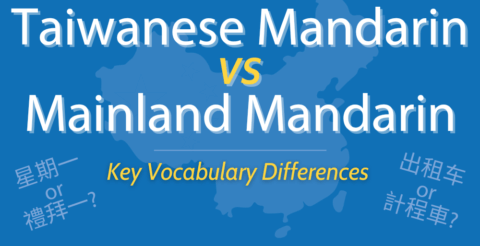
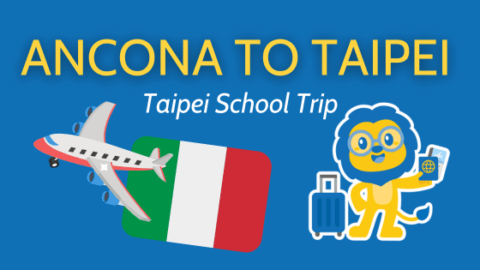
2 comments
Taiwanese Hokkien has similarities with Japanese Kukan 空間 from Kong-kan Chukan 中間 from Tiong-kan Kosai from 膏采 from Ku-tsai and many more. Taigi has similarities with Japanese and Korean Dongdaemun is from Tong Tai Boon and Cheongnyangni is from Tsing Liong Di, etc. and soon or later Jongno is from Tiong Lo Uijeongbu is Gi Tsing Ho and many more. And Taigi has Japanese and Korean words similar to this Hokkien variant used in Taiwan.
Thanks for your comment TJ 🙂